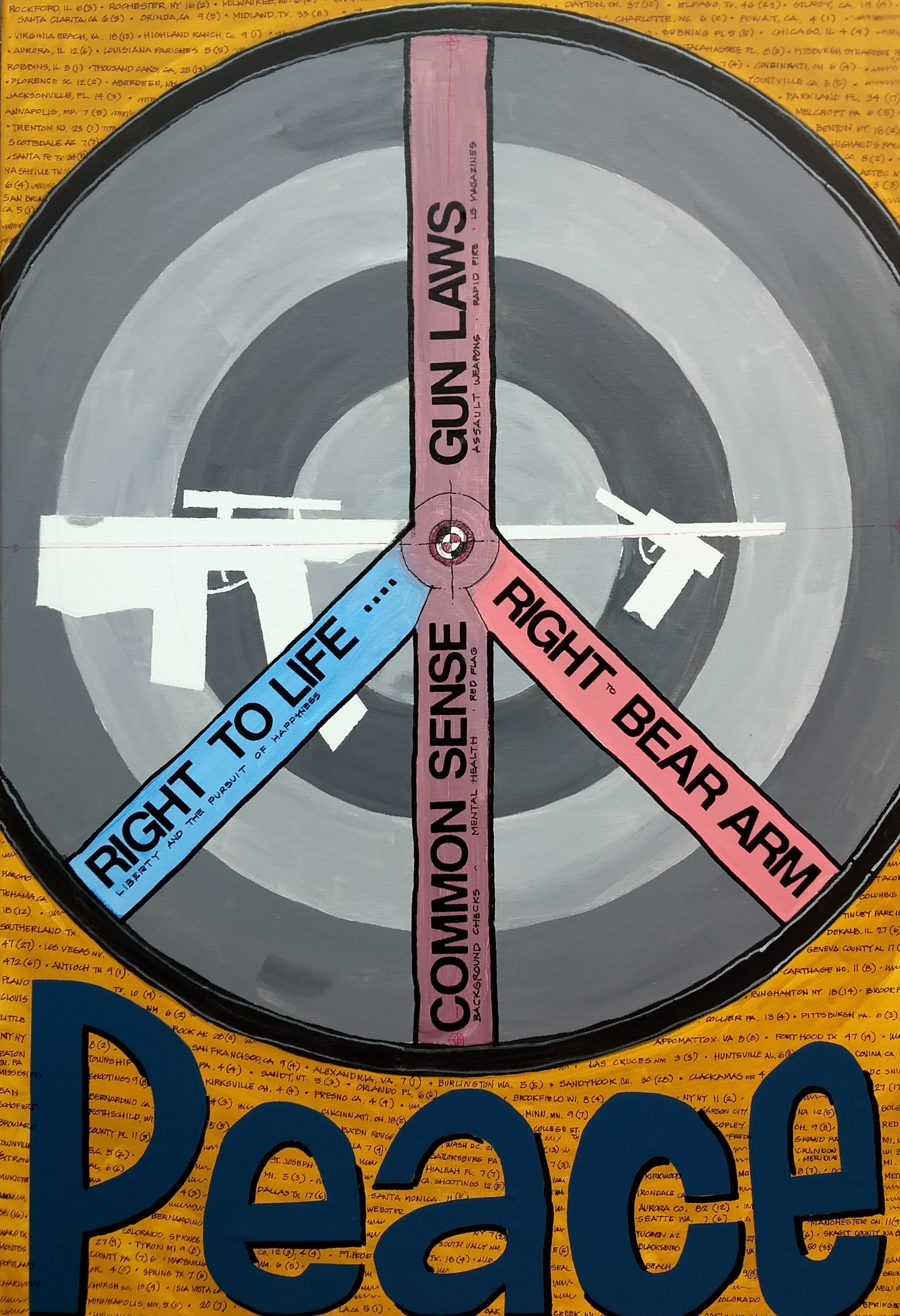Twenty-Seventh Sunday in Ordinary Time
“This is the heir. Come, let us kill him and acquire his inheritance.” Mt. 21:40
Violence.
Lately it seems like everywhere we turn we are assaulted by the reality of terrible violence.
Shooting and homicide rates are soaring from coast to coast. Recently, racial issues have resulted in violence in several American cities. The lack of appropriate gun laws has created an atmosphere of easy access to violent outcomes.
At the same time, we are dealing with a variety of other instances of violence.
Climate violence on our planet and in our atmosphere. Sexual violence via social media. Gun violence in our schools. Domestic violence in our homes. Bodily violence in our sports. Political violence in our words of lies and vicious accusations.
And then there’s the violence of a rampant disease that has resulted in a pandemic causing the loss of over 200,000 Americans, along with untold thousands worldwide.
Pope Francis has shared his own views about violence:
“Today we are in a world at war everywhere …. The level of cruelty of humanity at this moment should frighten us.”
Yet, amid all this, today we turn to the church in silence, prayerfully open Sacred Scripture, and begin reading … only to find that even here we are met with a Gospel story telling of people being beaten and stoned and killed!
God himself is even pictured as the owner of the vineyard “who will put those wretches to a miserable death and lease the vineyard to other tenants who will give him the produce at the harvest time.” (Mt 21:41)
This parable of the Wicked Tenants is so difficult to hear and comprehend that it makes very few of the “Most Beloved Stories of Jesus” lists.
What makes it doubly harsh, with its many references to the first century Palestine’s leaders of the Jewish people, is that this parable has been used historically to justify horrific violence against Jewish people.
This parable also is even more jarring and challenging up next to the recent celebration of the feast of St. Francis of Assisi, perhaps the most popular saint who ever lived.
His renown has been further magnified by our present pope taking his name, and doing all that he can to follow Francis’ example as a man of peace and compassion and humility – virtues that directly contradict the mood of today’s Gospel.
So why are we presented this story? What can we possibly glean from it that will be positive and meaningful in our day?
Allow me to offer two suggestions:
First, we need to remember that Matthew, writing from and for a Jewish Christian community 50-60 years after Jesus died, was responding to the continual religious and economic mistreatment of the Jewish people of the time by their own powerful leaders. Matthew’s purpose was to assure his own community of Christians that there would be ultimate divine justice.
Second, this parable gives us an opportunity to look carefully and honestly at the world we live in today.
For example, the “vineyard” described in today’s Gospel could be the very zip code you and I share.
The “stones rejected by the builder” could be the unwanted dimensions of our own personalities.
The “landowner” could be each of us and how we attempt to play God and want to bring fire and brimstone down on those we deem deserving of it.
So, after reading this parable, we might want to ask ourselves questions like these:
What kind of violence am I guilty of?
How do I contribute to the spread of meanness and retaliation?
What about my use of words? Are they violent?
Are my attitudes vengeful and envious?
How are we contributing to a politics that encourages violence?
Where do I see myself in this Gospel story? Am I one of those who would say today’s equivalent of:
“This is the heir. Come, let us kill him and acquire his inheritance”?
As repugnant as it seems, we’re all in this story somewhere.
We’re all contributing to the rise of violence somehow.
The questions we need to answer are: Where? How? Why?
Fortunately, the second reading from St. Paul’s letter to the Philippians can help us all find the “peace of God that surpasses all understanding,” a peace that will “guard your hearts and minds in Christ Jesus.”
That peace, Paul tells us, will be found in “whatever is true, whatever is honorable, whatever is just, whatever is pure, whatever is lovely, whatever is gracious … think about these things.”
Think about these things, Paul tells us.
He’s talking about prayer and meditation.
He’s talking about guarding our hearts and minds from all the thoughts of vengeance and meanness each of us can generate.
He’s talking about producing fruit in the vineyard of our lives that will make positive contributions to the lives of others.
He’s talking about rejecting the stones of negativity about our own selves we often gather and hold tight.
As one writer put it:
“Don’t long to be other than what you are. Desire only to be thoroughly what you are.”
Perhaps one of the most effective ways each of us could “guard our hearts and minds” from violent words and attitudes and behaviors creeping into our lives is to daily reflect on the prayer of that great man of peace whose entire life was dedicated to ending violence against one another, against nature, and against God:
Francis of Assisi.
“Lord, Make me an instrument of your peace.
Where there is hatred … let me sow love.
Where there is injury … pardon.
Where there is doubt … faith.
Where there is despair … hope.
Where there is darkness … light.
Where there is sadness … joy.
O Divine Master, grant that I may not so much seek
To be consoled … as to console.
To be understood … as to understand.
To be loved … as to love.
For
It is in giving … that we receive.
It is in pardoning … that we are pardoned.
It is in dying … that we are born to eternal life.”
Ted Wolgamot, Psy.D.
NOTE: A further reflection on the notion of violence in today’s world by the scripture scholar, Fr. Jose Pagola, as represented in this Sunday’s Gospel:
Fr. Pagola begins by asking this question:
“Will modern human beings find God – the One who can make humanity more responsible, more free, more human – among believing Christians?”
“It is not an oversimplification to say that ‘private property, profit, and power’ have become the pillars of Western industrial society. If we analyze the framework on which our social behavior is based, we can almost always see its roots in an unlimited desire for acquisition, enrichment, and domination. The bitter fruits of this behavior are evident in our time.
Eagerness to possess is gradually shaping a new and self-serving way of life, almost exclusively concerned with material goods, indifferent to the common good of society. We speak of ‘private property’ precisely because the owner has the power to ‘deprive’ everyone else of its use or enjoyment. The result is a society structured around the interests of the powerful, not at the service of the people most in need and most deprived of well-being.
The unrestrained desire to acquire, conserve, and increase our own good is creating human beings who struggle for themselves and organize their lives to defend against each other, pushing them toward rivalry and competition and violence, not toward solidarity and mutual service.
The desire for power promotes a society based on aggressiveness and violence, where often the only law is the law of strength and power.”






